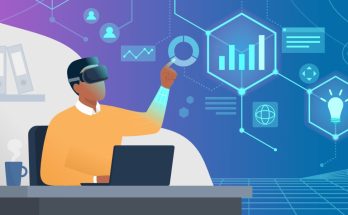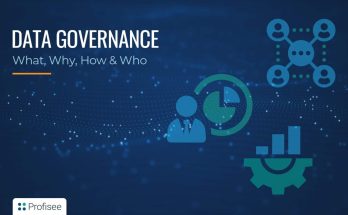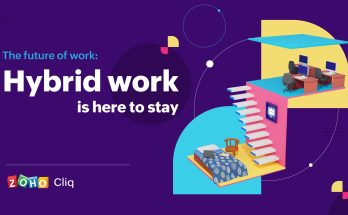Artificial Intelligence, once the stuff of science fiction, has rapidly transitioned from theoretical concept to practical reality, permeating nearly every sector of the global economy. This technological revolution is not merely optimizing existing processes; it is fundamentally reshaping the very fabric of the job market and the nature of employment opportunities. While the widespread adoption of AI sparks both excitement about new possibilities and anxieties about job displacement, the nuanced truth is that AI is creating a dynamic landscape where adaptability, continuous learning, and uniquely human skills will be paramount.
One of the most immediate and visible impacts of AI is the **automation of routine and repetitive tasks**. Historically, jobs involving predictable physical labor or data processing were prime candidates for automation. Today, AI’s capabilities extend to cognitive tasks that were once considered exclusively human. This includes anything from basic data entry and administrative duties to more complex operations like customer service inquiries handled by intelligent chatbots, initial legal document review, and even rudimentary content generation. A Goldman Sachs report, for instance, estimated that generative AI could expose hundreds of millions of jobs worldwide to automation. This doesn’t necessarily mean outright job elimination, but rather a significant transformation of existing roles, where AI handles the mundane, allowing humans to focus on higher-value activities.
However, the narrative of widespread job displacement is only one part of the story. Crucially, AI is also a powerful **catalyst for job creation and the evolution of new roles**. As AI systems become more sophisticated, there is a burgeoning demand for professionals who can design, develop, deploy, and maintain these intelligent technologies. This has led to the emergence of highly specialized roles that were virtually unheard of a decade ago. Think of **AI Engineers** who build the core algorithms, **Machine Learning Engineers** who train and optimize models, and **Data Scientists** who extract meaningful insights from the vast datasets AI generates. Beyond these core technical roles, there’s a growing need for **Prompt Engineers**, individuals skilled in crafting precise queries to elicit optimal outputs from generative AI models, effectively bridging the gap between human intent and machine execution.
Moreover, the ethical implications of AI are giving rise to new professions like **AI Ethicists** and **AI Compliance Managers**, whose responsibilities include ensuring AI systems are fair, unbiased, transparent, and adhere to evolving regulatory frameworks. There’s also an increasing demand for **AI Trainers** who refine AI models’ understanding and responses, particularly in customer-facing applications, and **AI Integration Specialists** who help organizations seamlessly adopt AI technologies into their existing workflows. These new roles highlight a shift towards a workforce that not only understands AI but can also guide its development and integration responsibly and effectively.
Beyond the creation of entirely new job titles, AI is profoundly **augmenting and transforming existing professions**. Instead of outright replacement, AI often acts as a powerful co-pilot, enhancing human productivity and enabling workers to achieve more with less effort. In healthcare, AI assists radiologists in detecting anomalies in medical images with greater speed and accuracy, allowing doctors to focus on diagnosis and patient care. In finance, AI algorithms can perform complex market analysis and risk assessments, empowering financial analysts to make more informed investment decisions. Even in creative fields, AI tools are helping artists, designers, and writers with ideation, content generation, and rapid prototyping, freeing them to focus on the unique human elements of creativity, storytelling, and emotional resonance. This augmentation elevates the quality of work and allows professionals to tackle more complex and strategic challenges.
This transformative shift in the job market necessitates a fundamental re-evaluation of the **skills required for future success**. While technical proficiency in AI-related tools and concepts is increasingly valuable, the demand for uniquely human skills is simultaneously accelerating. Critical thinking, complex problem-solving, creativity, emotional intelligence, collaboration, and adaptability are becoming more important than ever. These “soft skills” or “human skills” are precisely what AI struggles to replicate, making them a crucial differentiator in an AI-augmented workforce. Educational institutions and corporate training programs are recognizing this imperative, shifting focus towards curricula that foster both AI literacy and these indispensable human attributes. The World Economic Forum, for example, emphasizes the rapid change in skill sets required for jobs, predicting an even greater shift in the coming years.
The economic implications are also multifaceted. AI has the potential to significantly boost global productivity and economic growth by automating tasks and enabling new efficiencies. However, this growth might also exacerbate income inequality if proactive measures are not taken. Workers who can leverage AI effectively are likely to see increased productivity and higher wages, while those whose skills are easily automated without retraining may face stagnant wages or job displacement. This underscores the critical need for investment in widespread **upskilling and reskilling initiatives** by governments, businesses, and individuals. Policies focused on robust social safety nets and educational reforms will be vital to ensure that the benefits of AI are equitably distributed across the labor market.
In conclusion, Artificial Intelligence is not just another technological advancement; it is a profound force reshaping the very nature of work and opportunity. While it will undoubtedly automate many tasks and transform existing jobs, it is simultaneously creating a new landscape of highly specialized roles and augmenting human capabilities in unprecedented ways. The future workforce will be characterized by a symbiotic relationship between humans and AI, where success hinges on continuous learning, adaptability, and the cultivation of uniquely human skills. Navigating this transformation successfully requires proactive engagement from individuals, strategic foresight from businesses, and thoughtful policy development from governments, all collaborating to harness AI’s immense potential for a more productive and prosperous future.



